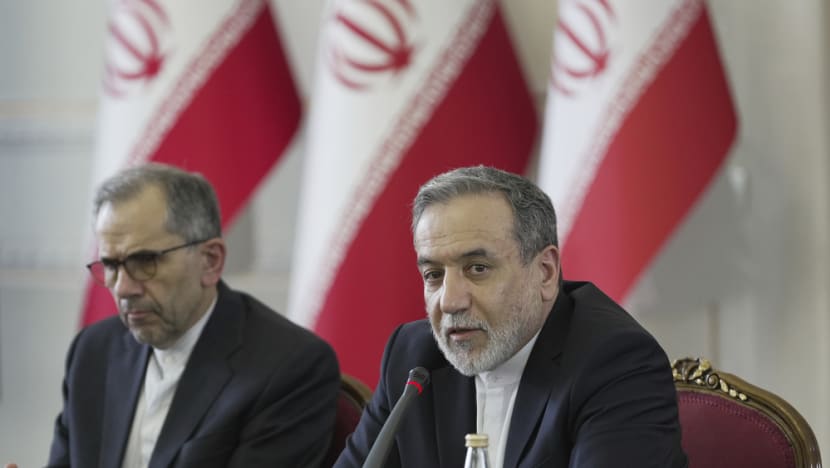World
Iran Delays US Nuclear Talks After Conflict with Israel

Iran announced on July 14, 2023, that it currently has “no specific date” set for a meeting with the United States regarding its nuclear programme. This development follows a recent conflict with Israel that disrupted ongoing negotiations. Foreign ministry spokesman Esmaeil Baqaei indicated that no arrangements have been made for a potential meeting between Iran’s chief diplomat Abbas Araghchi and US envoy Steve Witkoff.
Conflict Disrupts Diplomatic Efforts
The talks, which had previously been mediated by Oman, were put on hold after Israel launched surprise strikes on Iranian nuclear facilities on June 13. These attacks instigated a 12-day conflict, during which the United States also conducted military actions. Baqaei emphasized Iran’s commitment to diplomatic negotiations, stating, “We have been serious in diplomacy and the negotiation process.” He accused Israel of coordinating military aggression with the United States just before the anticipated sixth round of discussions.
Shortly after, Iranian President Masoud Pezeshkian reaffirmed Tehran’s dedication to pursuing diplomatic routes. He noted, “We continue to believe that the window for diplomacy remains open, and we will seriously pursue this peaceful path.”
Nuclear Concerns and Escalating Tensions
Israel and several Western nations allege that Iran is clandestinely developing nuclear weapons, a claim that Iran categorically denies. While Iran enriches uranium to levels approaching 60 percent purity, which is near weapons-grade, the United Nations atomic watchdog has stated there is no evidence indicating Iran is attempting to weaponize its uranium stockpile.
The Israeli strikes on June 13 resulted in casualties among nuclear scientists and senior military personnel, impacting both military and civilian sites. Following these events, the US conducted its own strikes on June 22, targeting locations in Fordo, Isfahan, and Natanz. The extent of the damage from these attacks is still being assessed, with Baqaei mentioning that investigations are ongoing. In retaliation, Iran launched missiles and drones at Israel and attacked a US base in Qatar. Pezeshkian warned of “even more crushing retaliation” should there be further aggression from Israel.
Baqaei also stated that Iran is maintaining communication with Britain, France, and Germany, the three European parties to the 2015 nuclear agreement. He asserted that there is “no legal, moral or political basis” for the reimposition of UN sanctions, emphasizing that Tehran would respond “appropriately and proportionately” if Europe activates the deal’s “snapback” mechanism, potentially leading to renewed international sanctions.
Despite the ongoing tensions, Baqaei affirmed, “The Islamic Republic of Iran still considers itself a member of the JCPOA.” Following the withdrawal of former US President Donald Trump from the agreement in 2018, Iran began to gradually reduce its commitments to the accord starting in 2019.
-

 World5 months ago
World5 months agoSouth Korea’s Foreign Minister Cho Hyun to Visit China This Week
-

 Business5 months ago
Business5 months agoStarling Bank Plans Secondary Share Sale, Targeting $5.4 Billion Valuation
-

 Top Stories5 months ago
Top Stories5 months agoMunsang College Celebrates 100 Years with Grand Ceremony
-

 World5 months ago
World5 months agoPAS Aims to Expand Parliamentary Influence in Upcoming Election
-

 Business7 months ago
Business7 months agoKenvue Dismisses CEO Thibaut Mongon as Strategic Review Advances
-

 Lifestyle6 months ago
Lifestyle6 months agoHumanism Camp Engages 250 Youths in Summer Fest 2025
-

 Sports6 months ago
Sports6 months agoDe Minaur Triumphs at Washington Open After Thrilling Comeback
-

 Sports7 months ago
Sports7 months agoTupou and Daugunu Join First Nations Squad for Lions Clash
-

 Top Stories7 months ago
Top Stories7 months agoColombian Senator Miguel Uribe Shows Signs of Recovery After Attack
-

 World7 months ago
World7 months agoASEAN Gears Up for Historic Joint Meeting of Foreign and Economic Ministers
-

 Health6 months ago
Health6 months agoNew Study Challenges Assumptions About Aging and Inflammation
-

 Business7 months ago
Business7 months agoOil Prices Surge Following New EU Sanctions on Russia









